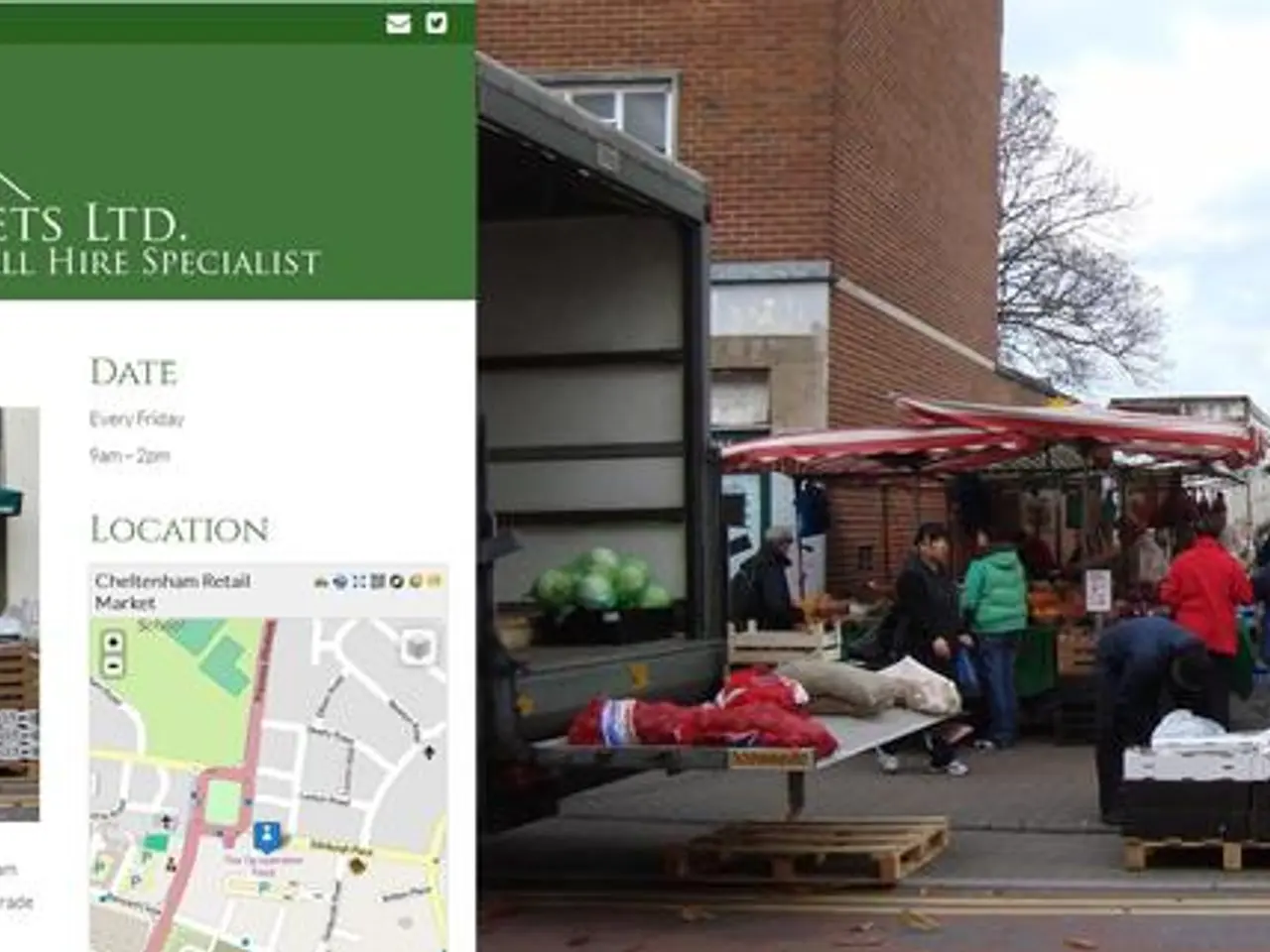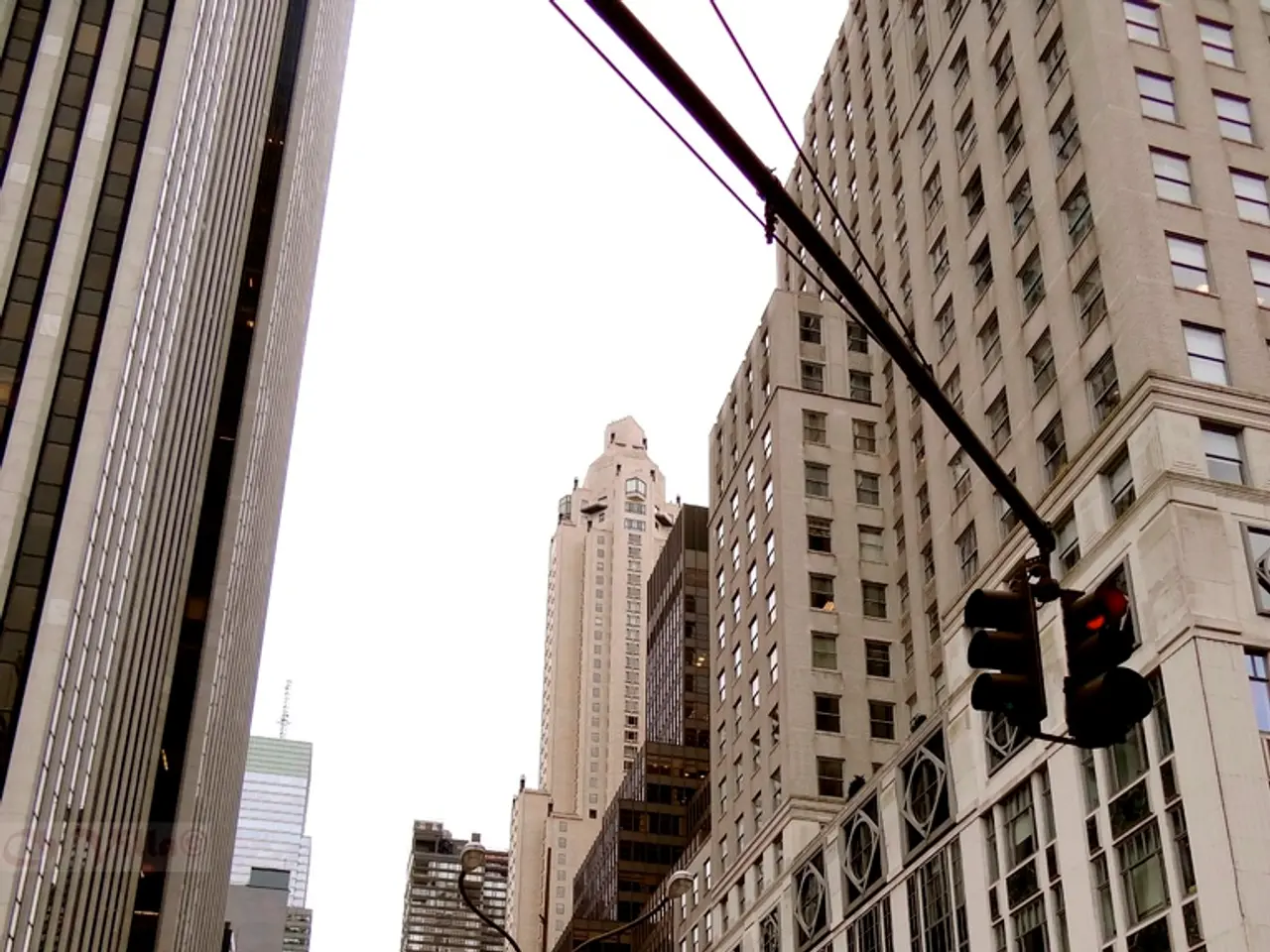"Is abandoning 'For Sale' signs in Westminster a wise choice? An anticipated shift in the area's advertising strategy."
In the heart of London, Westminster City Council has proposed a contentious plan to ban 'For Sale' signage across the borough, raising concerns about the potential impact on businesses and the wider property market. Critics argue that this move represents a misuse of localism powers and manifests NIMBYism (Not In My Back Yard) in the UK.
The council's proposal aims to address issues such as visual clutter and protect community character, but critics argue it potentially oversteps local government authority granted under devolution and empowerment frameworks. They see it as an example of localism being used to curb property market transparency and potentially restrict housing supply, reflecting a NIMBY attitude where local interests override broader housing needs.
This controversy is linked to wider debates over the misuse of devolved powers in England, especially following the introduction of the English Devolution and Community Empowerment Bill aimed at giving local authorities more power. While this bill and similar policies seek to empower local decision-making to tackle regional inequalities and improve living standards, some local councils are accused of using these powers in ways that stifle housing availability or economic activity under the guise of community protection.
The ban on 'For Sale' signage will impact small local estate agents who struggle to afford premises across boroughs. 'For Sale' boards serve as a vital means for these businesses to advertise locally, reaching potential buyers and sellers in their immediate vicinity. The high costs associated with listing properties on online platforms like Rightmove make 'For Sale' boards an affordable alternative for many small estate agents.
The proposed ban comes as Westminster Council faces criticism for its handling of housing issues. With an average house price of £960,000 and over £185million of unspent Section 106 funding, the council has been under pressure to address the housing needs of its residents. More than 4,000 people are on Westminster's council housing waiting list, and 2,204 people have been in temporary accommodation for at least ten years.
In addition, the ban proposal will be a test for the government on their stance towards growth and NIMBY decision-making. Rt Hon Angela Rayner, Secretary of State for Housing, Communities, and Local Government, has taken a firm stance against localist abuse, and the council's actions will be closely watched as a barometer of the government's commitment to promoting growth and addressing housing shortages.
The National Federation of Builders (NFB) has expressed concerns about the potential impact of this plan on businesses. Rico Wojtulewicz, Head of Planning and Market Insight at the NFB, has emphasised the importance of maintaining market openness and avoiding policies that could hinder broader housing and community development goals.
The council has not proposed to extend its Advertising Design Guidelines to 'For Sale' signs, despite setting local design codes for shop frontages. This raises questions about the council's commitment to maintaining visual amenity and local character while simultaneously restricting 'For Sale' signage.
The council also references climate change and the growth of online advertising as grounds for the ban. As the property market continues to evolve, it remains to be seen how this ban will impact the local economy and the housing market in Westminster.
The unauthorized 'For Sale' boards have decreased dramatically from 511 in 2013 to just 18 in 2023, suggesting that the current system may not be as problematic as some claim. However, the proposed ban has sparked a wider debate about the role of localism in shaping housing policies and the potential consequences for market transparency and housing supply.
As the controversy continues, it is clear that Westminster City Council's proposed ban on 'For Sale' signage is a significant issue that goes beyond the borough's borders, raising questions about the balance between local interests and broader housing and economic needs in the UK.
- The proposal by Westminster City Council to ban 'For Sale' signage could potentially conflict with the finance and business sectors, as critics argue it may restrict housing supply and market transparency, reflecting a NIMBY attitude.
- The National Federation of Builders (NFB) has voiced concerns over the potential impact of the proposed ban on local businesses, emphasizing the importance of market openness and housing development goals.
- The controversy surrounding the Westminster City Council's plan to ban 'For Sale' signage is linked to broader discussions in politics and general-news, touching on the misuse of devolved powers in England and the balance between local interests and broader housing and economic needs in the UK.




